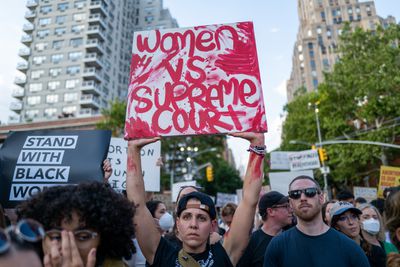Senators accuse Justice Kavanaugh of lying on abortion

US Senators Susan Collins (Republican) and Joe Manchin (Democrat) accused Supreme Court Justice Brett Kavanaugh on Saturday of lying to them about his position on abortion during his controversial confirmation process in 2018.
In statements to the media, both Collins -one of the most progressive Republican senators- and Manchin -one of the most conservative Democrats- recalled that Kavanaugh made them believe four years ago that his preference was to maintain the status quo of the jurisprudence on this issue. .
However, Kavanaugh – whose confirmation in 2018 was most controversial when an alleged episode of sexual abuse when he was a university student came to light – was one of the six Supreme Court justices who voted on Friday in favor of revoking the legal protection to abortion in the United States in force since 1973.
US President Joe Biden, reiterated Saturday his rejection of the decision of the Supreme Court that revoked the legal protection of abortion in force since 1973 and assured that the high court has made “terrible” decisions.
“I feel cheated,” Collins said. Manchin, for his part, included another judge, Neil Gorsuch , in the same package, saying that at the time he trusted both Kavanaugh and Gorsuch when they told him they would respect the case law.
Collins and Manchin voted in favor of both justices’ confirmations and, especially in Kavanaugh’s case, he might not have garnered enough support if both senators had opposed his confirmation.
The Supreme Court, with a conservative majority, ended Friday with the protection of the right to abortion, in force since 1973, with a controversial decision, which, according to President Joe Biden, takes the country back 150 years.
The ruling was approved with the support of six of the nine judges of the highest US judicial instance and maintains a Mississippi state law that restricts abortion after 15 weeks of gestation.
However, the conservative majority of the Court decided to go further and revoke the precedents established in the past by the court itself that protected that right.





